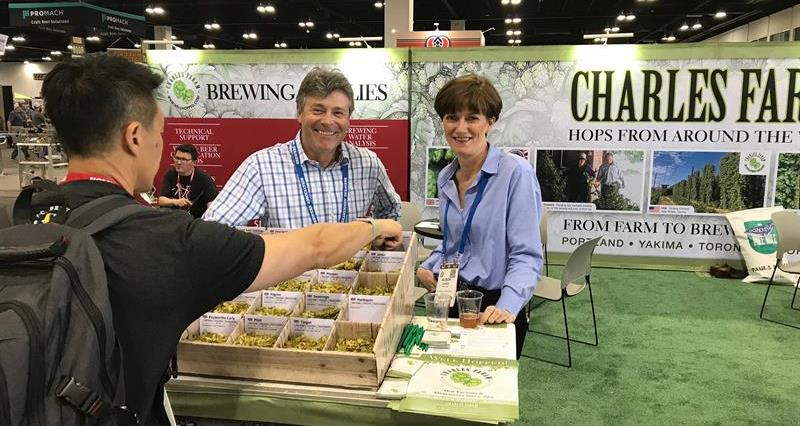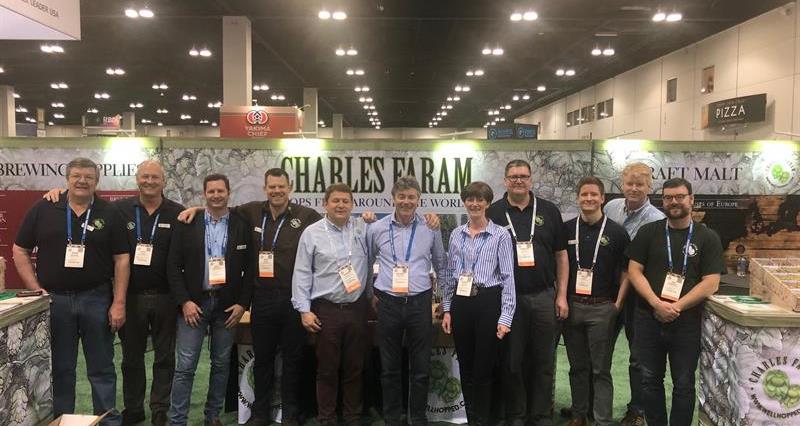I do wear a number of different “hats” and I was able to wear one of them for a whole week recently - my British Hops hat - in Denver Colorado at the American Craft Brewers Conference (CBC).
This involves standing on a trade stand with one of our key hop customers and talking about British hops, hop growing and the farm all week, and of course in the evening trying many of the local beers! I went with another local hop farmer Richard Phillips and we came back with lots of really helpful feedback on the hops that brewers prefer this year, the beer styles that are in the ascendancy and the flavours they are seeking for the future.
I passionately believe that producers must engage as closely as possible with their end consumer for so many reasons. For a hop grower, that end consumer is the brewer of the beer. Brewers are constantly looking for “something new, something different and something they have not tried before”. With over 150 different hop varieties available across the world that is a lot of ingredients to try!

As farmers on the trade stand, our role is to “rub and sniff” the British hops with brewers. The action of rubbing hops in the palm of the hand releases the hop oils and the related aromas. This gives the brewer a very good idea of the quality of the hops and the aroma notes that should pass into the beer as flavour notes when brewing. And hopefully the brewer then goes away wanting to buy British hops for the next experimental beer that he or she is brewing.
The facts:
- Over 30 British Hop varieties grown commercially
- Aroma notes include: pepper, floral, honey, passionfruit, mango, grapefruit, lime, lychee, chocolate, molasses, mint, summer fruits, autumn spices
- New hop variety breeding now utilising genetic SNP markers
- Over 15 new varieties introduced in the last 10 years
- Over 1,000 hectares in the UK, 55 growers
- British Hops represent 1.5% of world hop production (British wheat represents c. 1% of world wheat production)
Was the trip worthwhile – absolutely. This is my 7th year at the CBC and every year I come back with new ideas and real clarity about what varieties we should plant next, and also what direction our breeding programmes should be taking.
